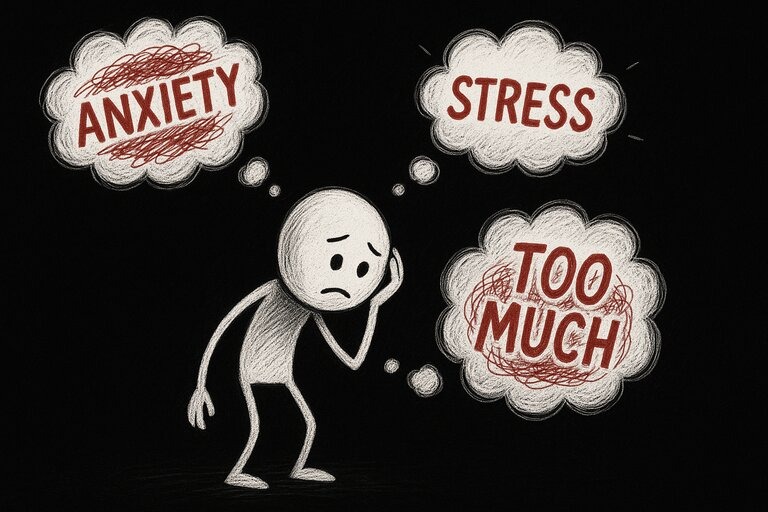
Building Connections and Releasing Shame: A Guide to Alleviating Loneliness
In today's fast-paced world, feelings of loneliness are pervasive but often go unacknowledged.
As individuals grapple with their social needs, Dr. Thema Bryant, in her book Matters of the Heart, offers valuable insights into understanding loneliness and, more importantly, how to address it with compassion and self-awareness.
While loneliness may seem personal, it is an experience shared by many, transcending age, relationship status, and circumstances.
Loneliness: A Universal Experience
Many people confuse solitude with loneliness. You might find comfort in moments alone yet still feel a hollow yearning for connection.
Recognizing that feeling lonely is not a reflection of self-worth is the first step to overcoming it. Dr. Bryant emphasizes that one can work on personal growth while still yearning for authentic relationships.
This duality is not weakness but rather an integral part of being human.
Research supports this notion. A survey conducted by health insurer Cigna in 2019 reported that a staggering 61% of Americans felt lonely, a statistic only amplified by the COVID-19 pandemic that fostered profound social isolation.
Chronic loneliness can lead to serious mental and physical health issues, highlighting the need to foster connections actively.
Destigmatizing Loneliness
One of the greatest barriers to seeking connection is the societal stigma associated with loneliness.
There’s a misconception that feeling lonely equates to being needy or dependent. In truth, the desire for connection is a vital element of human existence.
The takeaway? It's perfectly normal to crave authentic connections.
Building supportive bonds begins with destigmatizing the experience of loneliness. Once we acknowledge that everyone feels lonely from time to time, we open ourselves up to healing and growth.
Practical Steps to Foster Meaningful Connections
As daunting as it may feel to connect with others, small, intentional actions can make a significant difference.
Ryan Estis recommends starting with simple outreach, such as sending messages to loved ones to express affection or gratitude.
The initiative emphasizes the 'Text Message Challenge,' encouraging individuals to connect meaningfully each day.
This is not just for the sender's benefit, but it can impact the recipient deeply, reminding them they are valued and loved.
Using Technology Wisely: In our digitally connected age, technology can be a double-edged sword that exacerbates feelings of loneliness or fosters connections.
Make an effort to join online communities or local groups that resonate with your interests.
Challenge yourself to engage through platforms that support shared hobbies or mutual interests, thereby nurturing relationships built on common ground.
The Impact of Connection on Mental Health
Social connection is intricately linked to mental health. Studies, including those by Harvard, reveal that happiness correlates strongly with meaningful relationships.
Contrarily, isolation pulls individuals' mood down, making it crucial to understand that our social bonds are vital to well-being.
As you actively pursue connections, you not only combat loneliness but pave the way for a happier, healthier life.
Acknowledging and understanding your feelings of loneliness can empower you to take actionable steps towards building a supportive community.
Recognize that no one exists in isolation—everyone craves connection. When you embrace this truth, you can begin to shift toward a more fulfilling life.
Healing Through Self-Awareness
Building a strong sense of self is equally crucial in the journey to combat loneliness. Engage in practices of self-awareness and emotional healing.
Mindfulness, therapy, and genuine self-care routines can fortify your inner resilience, helping you to articulate your needs and boundaries in relationships.
These strategies encourage emotional liberation, allowing you to embrace vulnerability with others.
Embrace the Journey of Connection
Ultimately, recognizing loneliness as a universal human experience allows you to nurture not only your relationships but also your relationship with yourself.
It’s perfectly acceptable to reach out for help, and doing so can lead to a variety of fulfilling relationships.
Through active engagement and self-awareness, you can combat loneliness and build a rich network of support.
Remember, being connected is not just about the quantity of relationships—it’s about the quality.
Take the first step today, be it through a text, a phone call, or seeking new social opportunities. Your journey towards meaningful connections starts with you.
Take Action Now
Don't let loneliness diminish your quality of life. Take a proactive approach toward connection today.
Whether it’s reconnecting with old friends or exploring new social spheres, your actions can pave the way for deeper relationships. You deserve community and belonging—don’t hesitate to reach out!
 Add Row
Add Row  Add
Add 





 Add Row
Add Row  Add
Add
Write A Comment